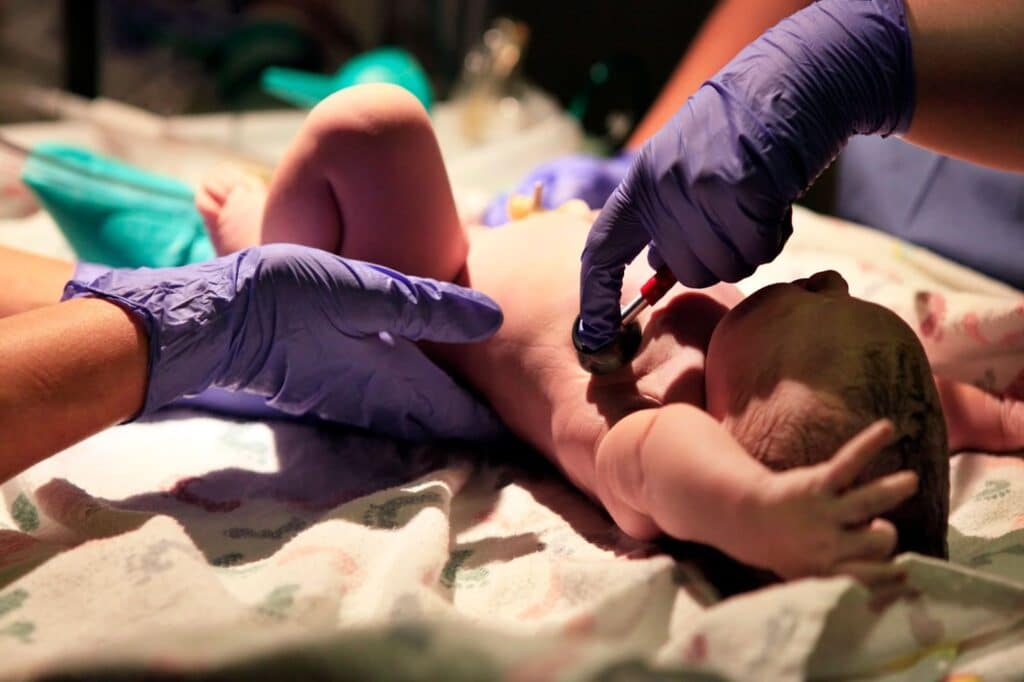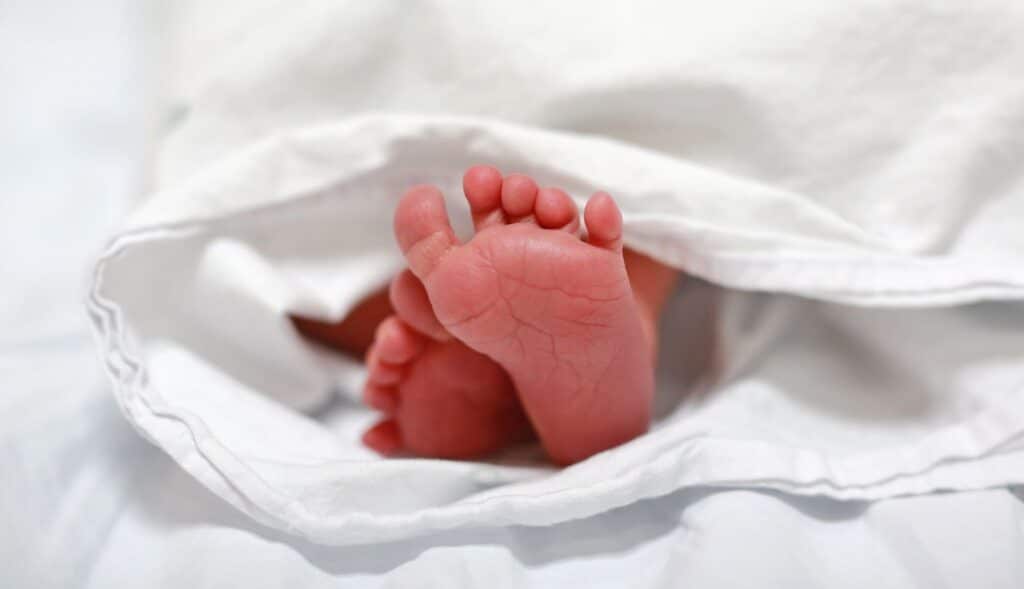
Bringing new life into the world is one of the most exciting moments for any family. But when your happiest moment turns into a nightmare because of a birth injury, the days ahead can be difficult, stressful, and costly.
Working with an experienced personal injury lawyer can be a beneficial way to move forward following a birth injury. An experienced attorney can help you recover compensation and alleviate some of the medical costs, pain and suffering, and trauma that will accompany a family following a birth injury.
If you or your loved one has suffered following a birth injury, knowing your rights and what to do next can prove invaluable. Read on to learn more about navigating the road ahead following a birth injury.
Table of Contents
About Bachus & Schanker Birth Injury Lawyers
The legal team at Bachus & Schanker is committed to representing those who are in their most vulnerable state. Our professional team of attorneys, paralegals, and investigators work on behalf of those who have suffered due to the negligence of others.
As one of Colorado’s most recognized personal injury law firms, we’re proud to serve the area’s residents during their greatest times of need. With offices in communities including Denver, Englewood, Fort Collins, Colorado Springs, and Aurora, our team is ready to help you when you need it the most.
If you or your loved one is experiencing the after-effects of a traumatic birth injury, you may be entitled to compensation. Reach out to the experienced Colorado birth injury attorneys at Bachus & Schanker for a free consultation about your case.
How Did the Birth Injury Happen?
One of the first questions that will come to mind if you or a loved one has experienced a birth injury is ‘how did the injury happen?’ While modern medical advances have helped demystify what goes on during pregnancy, the unexpected can happen even when everything is going right.
According to the Birth Injury Justice Center, 7 out of every 1,000 babies will suffer a birth injury. Oftentimes, birth injuries will occur later in the pregnancy, with most occurring during delivery.
Common Causes of Birth Injury

Birth injuries can occur for a number of reasons. In an overwhelming amount of cases, it is usually no fault of the mother that the birth injury occurs.
Birth injuries can occur due to environmental factors and health complications during the pregnancy, but most occur during delivery.
In some cases, medical malpractice during the pregnancy or the delivery can also cause a birth injury to occur.
Every situation is unique, and it’s essential to evaluate your circumstances with medical professionals and a legal team to determine the cause of your child’s birth injury. Understanding how the birth injury occurred will better equip you with the tools you need to move forward.
Some of the more specific and common reasons for a birth injury to occur can include but are not limited to the following:
- A pregnancy goes on longer than the expected due date
- Genetic, environmental, and socio-economic factors
- Slip and fall injuries
- Getting struck by a moving object, such as a vehicle
- Fractured bones during delivery (such as the collarbone)
- Oxygen deprivation during delivery
- Neonatal strokes
- Maternal obesity
- A prolonged labor
- Abnormal fetal presentation during birth
- Complications during a cesarean section
- Improper use of delivery tools
- Factors associated with a high-risk pregnancy
- Medical malpractice
If the event of birth injury malpractice, there are a variety of circumstances that can cause the injury to occur. Often, improper use of delivery tools such as a vacuum extractor and forceps can cause unnecessary harm to a newborn baby. Medical providers that improperly monitor a woman during labor can also result in a birth injury.
If you feel your child’s injury was the result of medical malpractice, it is important to seek legal representation. Working with an experienced legal team can help you navigate your options so that you and your family can confidently navigate the road ahead.
Common Types of Birth Injury
Birth injuries can take on many forms, some being so minor that they can go unnoticed, while others are major injuries that will have lifelong implications. Some birth injuries can have a severe short-term impact but not result in any future or long-lasting negative implications as well.
Regardless of the type of birth injury your child and family go through, it does not minimize the pain, suffering, or costs that come with the injury. Below are some of the more common types of birth injuries, according to the latest data.
- Brachial palsy – A birth injury causing nerve damage to the arm and hands, ranging from temporary to permanent injury. Babies will often undergo occupational therapy.
- Erb’s palsy – Muscle weakness in the shoulder or arm as a result of injury during delivery.
- Bruising – Misusing delivery tools such as a vacuum extractor or forceps can cause bruising around a baby’s body.
- Injury during a C-section – If a baby is delivered via C-section, injury can happen as a result of misusing the delivery tools. Injuries range but can often include lacerations and bruising from using delivery tools.
- Caput succedaneum – Significant swelling of a baby’s soft tissue on their scalp. This can occur naturally but also through the use of a vacuum extractor. Often babies will recover within a few weeks without further harm.
- Fractures – The intense pressure of a delivery coupled with a medical provider’s guidance of the baby through the birth canal can lead to fractures. Often, a baby’s clavicle is fractured, requiring the use of a splint and, in extreme cases, surgery.
- Cerebral palsy – characterized by a lack of motor skill development, muscle spasms, and overall weak muscles, cerebral palsy can occur when one part of a child’s brain is damaged during delivery. This damage occurs because of a lack of oxygen. Cerebral palsy ranges in severity and can often have lifelong implications.
- Brain injury – Brain injuries typically occur when there is a lack of oxygen supply to the brain, resulting in conditions including cerebral palsy and chronic seizures. In many of these cases, babies can experience a wide range of long-term effects from brain injuries.
My Child Has Suffered a Birth Injury, Now What?
If your child has suffered a brain injury, it’s understandable to feel confusion, sadness, frustration, and anger. As with any calamity in life, it’s important to assess the situation and act accordingly. Implementing these tips can better equip you and your family to navigate the future following a birth injury.
Do Not Blame Yourself
An overwhelming number of birth injuries occur naturally during delivery, at no fault of the mother. It is important not to blame yourself if your child has suffered a birth injury, as in many cases, there is not much that can be done to prevent a birth injury from occurring.
Giving birth to a child is an incredibly difficult process for your body, and even with all the preparation in the world, anything can go wrong at a moment’s notice. If your child has suffered a birth injury, claim the mantra that “it is not my fault.”
Seek Emotional Support
Having a strong emotional support system around you can help you move forward as you navigate life following a birth injury. Your support system can include your significant other, your immediate family and friends, and any medical and mental health professionals that you trust.
One in 8 women reports experiencing postpartum depression following birth. If you or your baby has suffered a birth injury, your emotional state can be further challenged following the trauma. In addition to postpartum, some women experience post-traumatic stress disorder following a birth injury. It’s essential to seek the emotional care you need during this tough time.
File a Formal Complaint
It’s important to file a formal complaint with the necessary parties following a birth injury. This can include your healthcare provider’s practice, the hospital or facility where you gave birth, and any other parties you feel may have been at fault during delivery. Filing a complaint allows you to establish a paper trail in the event that you do move forward with a personal injury lawsuit.
Follow Up With Medical Care
Babies are incredibly resilient, and even after suffering a brain injury, their bodies will work to repair the damage as quickly and efficiently as possible. For this reason, it’s important to seek medical care and follow up with that care after your child has suffered a brain injury.
As you move forward with the care, keep a detailed record of documents, bills, and invoices. If you do move forward with a personal injury claim, this documentation will prove to be invaluable.
Ask Questions and Do Your Research
If you move forward with a personal injury claim, be sure to do your research and ask plenty of questions along the way. Looking up statistics of hospitals or facilities where you gave birth can help you establish their rate of successful pregnancies. If there’s a pattern of negligence, doing your research can help to bring this pattern to light as well.
Was the Birth Injury Preventable?
In some cases, birth injuries are not preventable because of the natural stressors that occur during pregnancy. In other cases, birth injuries can be entirely avoidable. In instances where medical malpractice has occurred, proving negligence is imperative to building a successful personal injury claim. Here’s what to know when it comes to proving that an injury was the result of negligence.
Working with an experienced birth injury attorney can help you establish if negligence contributed to your child’s birth injury.
How are Birth Injury Babies Treated?
Birth injury babies are treated according to their specific injury. For some babies, this means treatments such as physical therapy for a designated period of time. Some babies will be administered medication in conjunction with physical therapy to help with their birth injury. For example, if a baby has suffered a stroke during pregnancy, they may take anti-seizure medication to help keep them from experiencing further harm.
Many times, when dealing with a birth injury such as brain damage, the trauma is isolated to the event and does not cause further complications. In these cases, physical therapy and other exercises are implemented to improve a child’s motor development and cognition.
It’s important to seek medical guidance and keep up with medical care following your child’s birth injury.
Should I Seek Help From a Birth Injury Lawyer?

If you or your loved one’s child has experienced a birth injury, reaching out to an experienced legal team can prove invaluable.
At Bachus & Schanker, we are proud to be a leading personal injury legal firm throughout the greater Colorado area. With years of experience and over $1 billion recovered for our clients, we are committed to serving the needs of our community in their most vulnerable moments.
Contact our offices today and ask about a free case consultation. Work with the area’s best and get the representation you deserve.
Client Stories
Meet Our Legal Experts
We know what happened to you is unimaginable. Our only goal is to help you and your family on this painful journey and fight for your rights. When you need skilled, experienced, and compassionate representation, the Elite Litigation Group is here for you. With years of experience and multiple office locations serving nationwide, our personal injury attorneys are ready to serve you and fight for the compensation you deserve.
Testimonials
“Thank you for not giving up on me”
…there was a point when I wanted to give up… Bachus & Schanker did not give up on me. They just kept pushing through and letting me know that we’re on a team and that they’re there for me, to support me and help me in any way I need.
Thank you for giving me a second chance, for helping me with a second chance and thank you for not giving up on me.
When you go through an accident, so many people you find give up on you and you don’t matter anymore to them and that wasn’t the case with Bachus & Schanker.
Molly Cain




